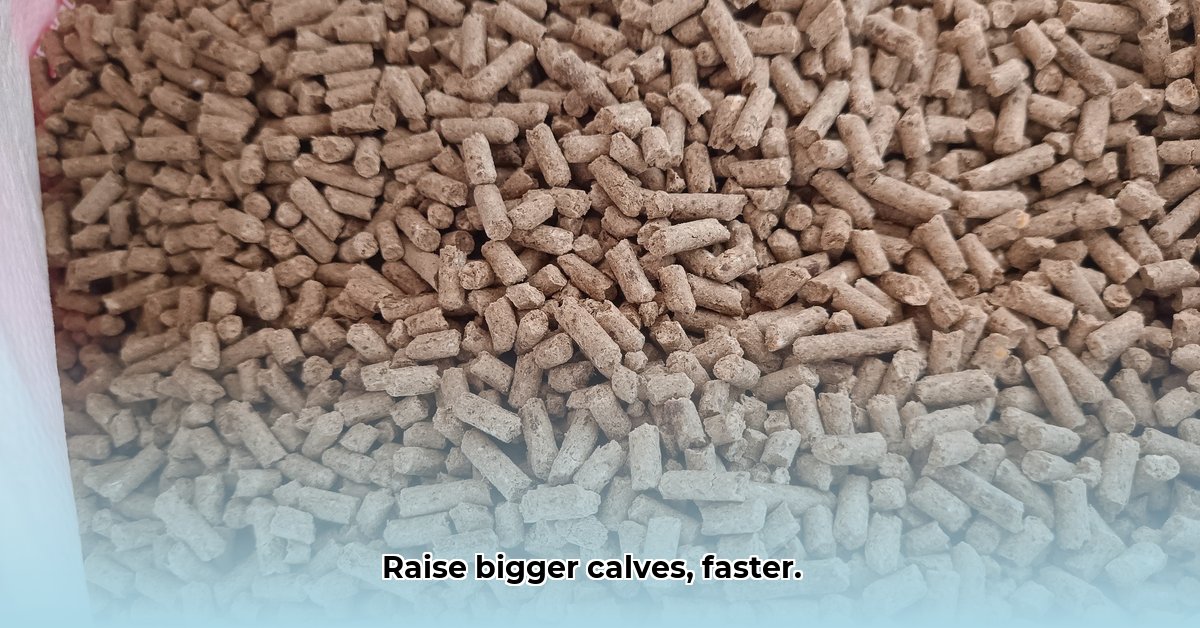
Raising healthy, thriving calves is essential for any successful farming operation. Choosing the right calf starter is a crucial step, and Tractor Supply offers a range of options to meet your needs and budget. This guide provides actionable advice on selecting, feeding, and managing calf starter for optimal growth while minimizing environmental impact. For more information on Tractor Supply's offerings, check out their website.
Choosing the Right Calf Starter at Tractor Supply
Tractor Supply provides various calf starters, each with unique nutritional profiles and sustainability features. Understanding the differences is key to making an informed decision. Don't you want the best possible start for your calves?
Types of Calf Starters
| Calf Starter Type | Description | Key Benefits | Potential Drawbacks | Sustainability Considerations |
|---|---|---|---|---|
| Conventional Calf Starter | Grain-based, high in energy and protein; a reliable, widely available option. | Often most affordable; readily available; promotes rapid growth | May lack certain nutrients; larger environmental footprint | Consider locally sourced ingredients where available. |
| Medicated Calf Starter | Contains antibiotics or coccidiostats to prevent disease. | Reduces health problems and improves feed efficiency. | Antibiotic resistance is a concern; requires careful handling and adherence to regulations. | Evaluate the necessity of medication; explore alternative disease prevention strategies. |
| Organic Calf Starter | Made with certified organic ingredients. | Environmentally friendlier; potentially healthier for calves. | Typically more expensive; may result in slightly slower growth | Supports sustainable agriculture and reduces chemical exposure. |
The best choice depends on your budget, growth goals, and commitment to sustainable practices.
Feeding Your Calves: A Step-by-Step Guide
Proper feeding techniques are crucial for maximizing the benefits of calf starter and promoting healthy growth. Remember, consistency is key.
Gradual Introduction: Mix small amounts of calf starter into milk replacer over several days to avoid digestive upset. This approach helps ensure smooth transition.
Free-Choice Feeding: Allow calves continuous access to feed. They’ll self-regulate intake.
Monitor Intake: Regularly monitor individual consumption to adjust feed amounts as needed. This ensures each calf receives adequate nutrition.
Fresh Water Access: Always provide clean, fresh water. Dehydration severely impacts growth.
Cleanliness: Regularly clean feeding troughs to prevent bacterial contamination and disease. This is a simple yet effective step.
Sustainability: Eco-Friendly Calf Rearing
Sustainable practices benefit both your calves and the environment. What measures can you take?
Local Sourcing: Prioritize calf starters with locally sourced ingredients to minimize transportation emissions and support local economies.
Minimize Waste: Overfeeding contributes to waste and environmental impact. Efficient feeding strategies are essential.
Manure Management: Implement responsible manure management techniques to reduce methane emissions.
Cost-Effectiveness: Long-Term Value
While the initial cost of a calf starter is a factor, consider the long-term benefits. A superior-quality feed promoting faster, healthier growth can reduce veterinary bills and accelerate time to market for financial gains.
"Investing in high-quality calf starter is a smart financial strategy in the long run," says Dr. Emily Carter, Veterinarian and Professor of Animal Science at Cornell University. "Faster growth translates to quicker returns."
Key Takeaways and Conclusion
Optimizing calf nutrition significantly impacts growth, health, and overall farm profitability. By understanding the various calf starter options at Tractor Supply, implementing proper feeding techniques, and embracing sustainable practices, you can raise healthy, thriving calves while minimizing your environmental footprint. Remember, responsible calf rearing is a continuous learning process. Stay informed about advancements in animal nutrition and sustainable farming practices.